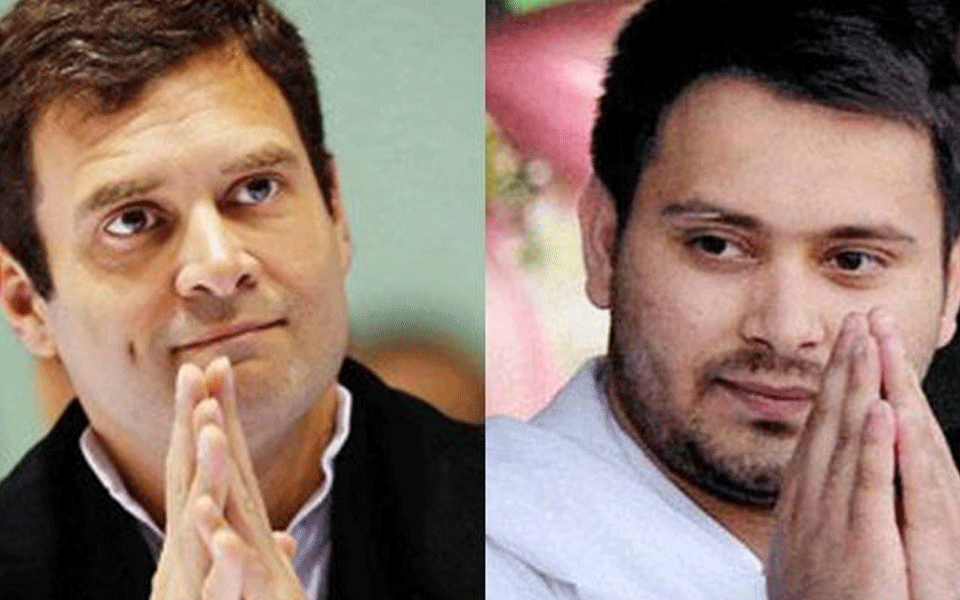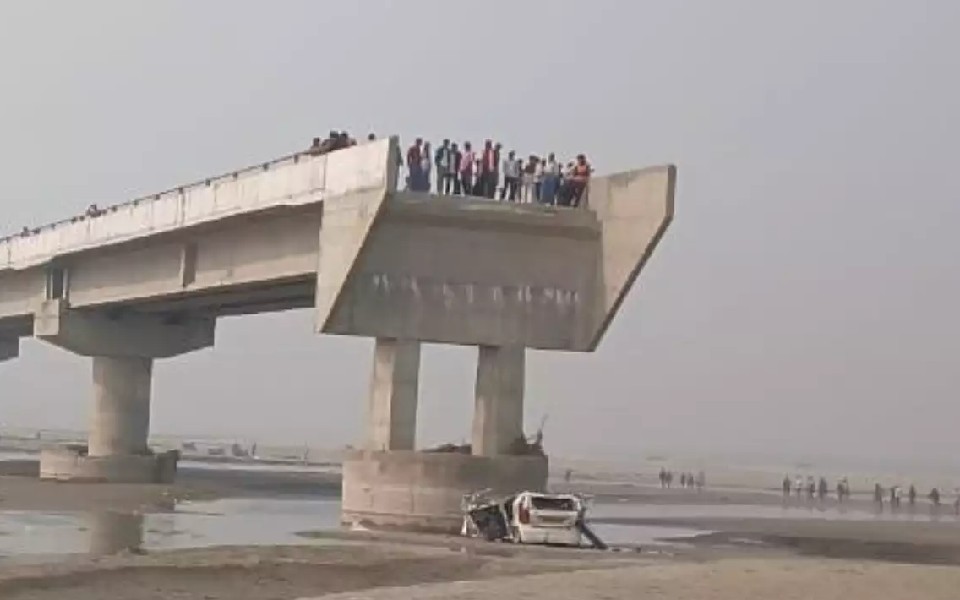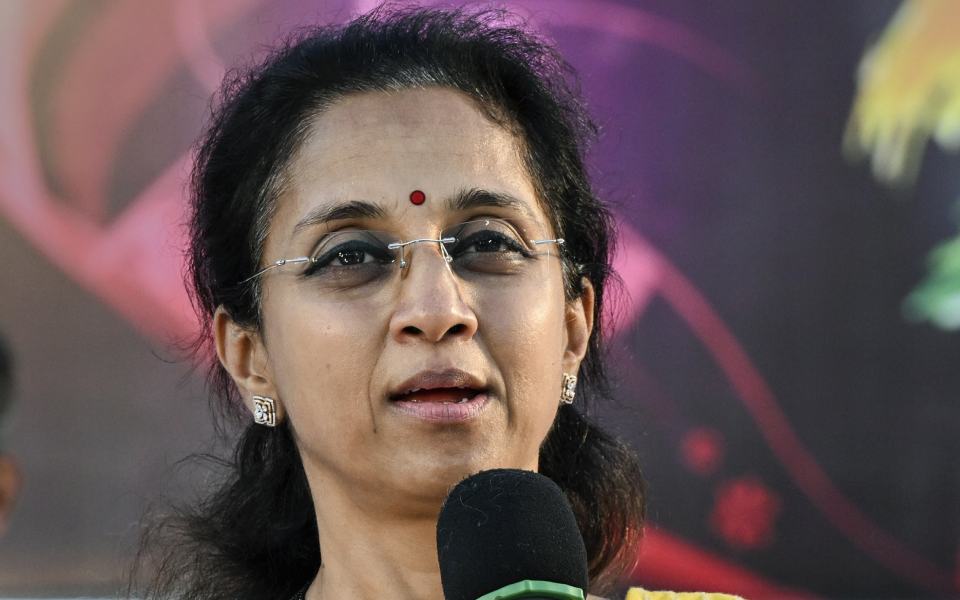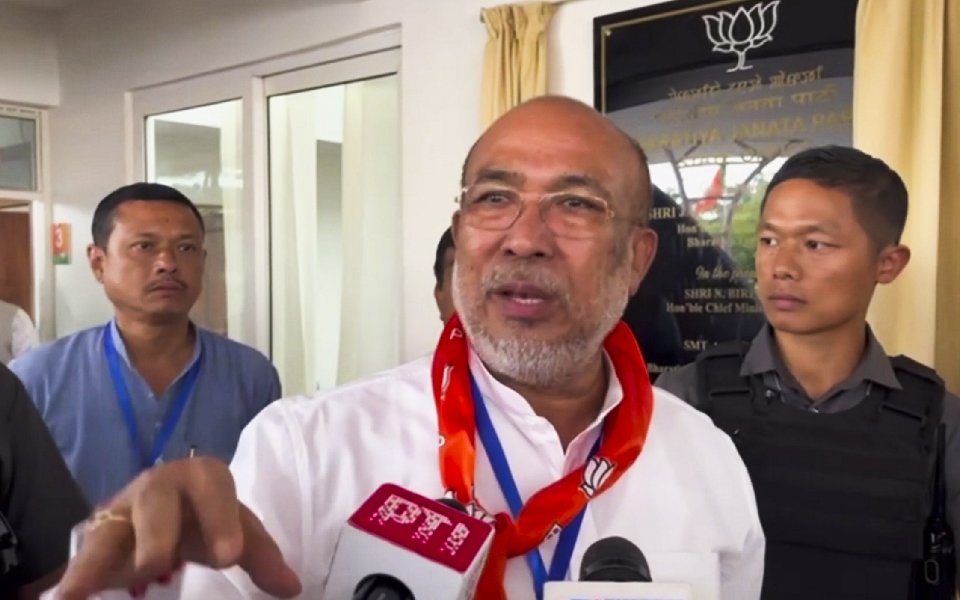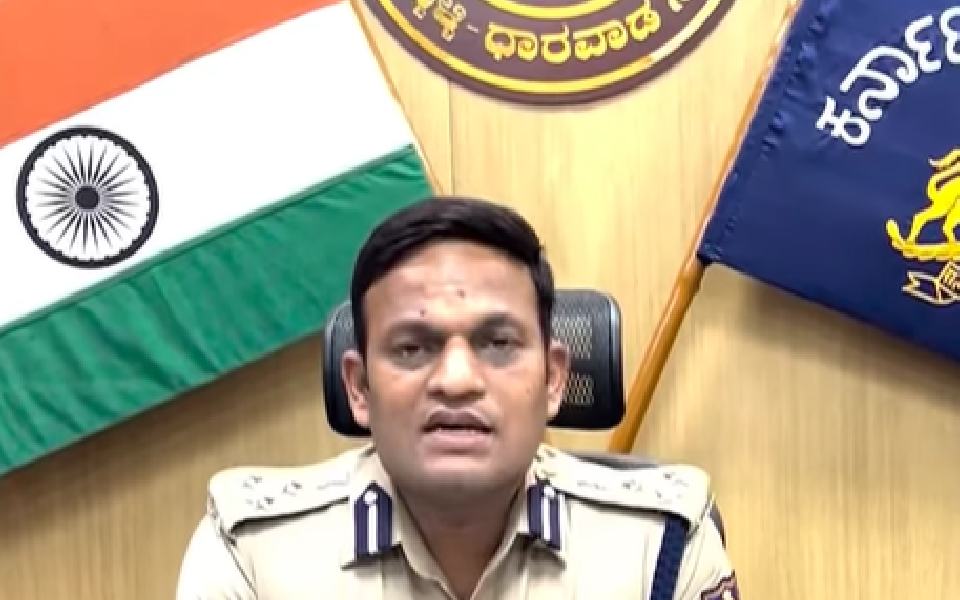Panaji/Patna, May 17: The Congress in Goa and the RJD in Bihar on Thursday said they would ask the governors of their states to give them a chance to form the government the same way that BJP leader B.S. Yeddyurappa was sworn-in in Karnataka as the leader of the single largest party.
"If the Karnataka Governor can invite the Bharatiya Janata Party, the single largest party, to form the government, why can't the Goa Governor invite the Congress, the single largest party in Goa, to form the government here? Why two criteria for two states? Why double standards? Congress state President Girish Chodankar told reporters.
Chodankar demanded that Governor Mridula Sinha should follow in the footsteps of her Karnataka counterpart Vajubhai Vala and invite the Congress, which emerged as the single largest party in the Assembly after the 2017 Assembly elections, to form the government in the coastal state.
"We request Her Excellency to follow big brother Karnataka Governor and invite the Congress to form the Goa government to rectify a wrong."
The BJP won 13 seats in the 2017 Assembly elections, compared with 17 of the Congress.
However, after swift political maneuvering, the BJP staked claim to power with two regional parties and independent MLAs and formed a coalition government after getting the nod from Sinha.
RJD leader Tejashwi Yadav too wanted Bihar Governor Satyapal Malik to invite his party to form the government as the leader of the single largest party in the state Assembly.
"I will meet the Governor along with our MLAs on Friday as we are the single largest party in Bihar," Tejashwi Yadav, who is also the Opposition leader in the Bihar Assembly, said.
The Rashtriya Janata Dal (RJD) leader said that if the Bharatiya Janata Party was invited by the Karnataka Governor to form the government on the grounds that it was the single largest party, then the RJD also had the right to form the government.
"We will request the Bihar Governor to dismiss the state government and invite the RJD to form the government," he said.
In Karnataka, BJP's B.S. Yeddyurappa was sworn in as Chief MInister by Governor Vala, despite protests from the Congress and Janata Dal-Secular, which formed a post-poll coalition to bid for power.
The combine of the Congress and the JD-S too had staked its claim to forming a government by citing the support of 117 MLAs. The majority mark in the Karnataka assembly is 112 seats. The BJP has 104.
Let the Truth be known. If you read VB and like VB, please be a VB Supporter and Help us deliver the Truth to one and all.
Bareilly (UP), Nov 24: Three people died when their car fell into the Ramganga river from a partially constructed bridge here on Sunday, police said, adding that they suspect the driver was misled by its navigation system into taking the unsafe route.
The accident occurred around 10 am on the Khalpur-Dataganj road when the victims were travelling from Bareilly to Dataganj in the Badaun district, they said.
"Earlier this year, floods had caused the front portion of the bridge to collapse into the river, but this change had not been updated in the system," Circle Officer Ashutosh Shivam said.
The driver was using a navigation system and did not realise that the bridge was unsafe, driving the car off the damaged section, the police said.
There were no safety barriers or warning signs on the approach to the damaged bridge, leading to the fatal accident, Shivam said.
Upon receiving information, police teams from Faridpur, Bareilly and Dataganj police station rushed to the spot. They recovered the vehicle and the bodies from the river, Shivam added.
The circle officer said that bodies had been sent for post-mortem. Further investigation into the matter is underway.
— Bareilly Police (@bareillypolice) November 24, 2024

